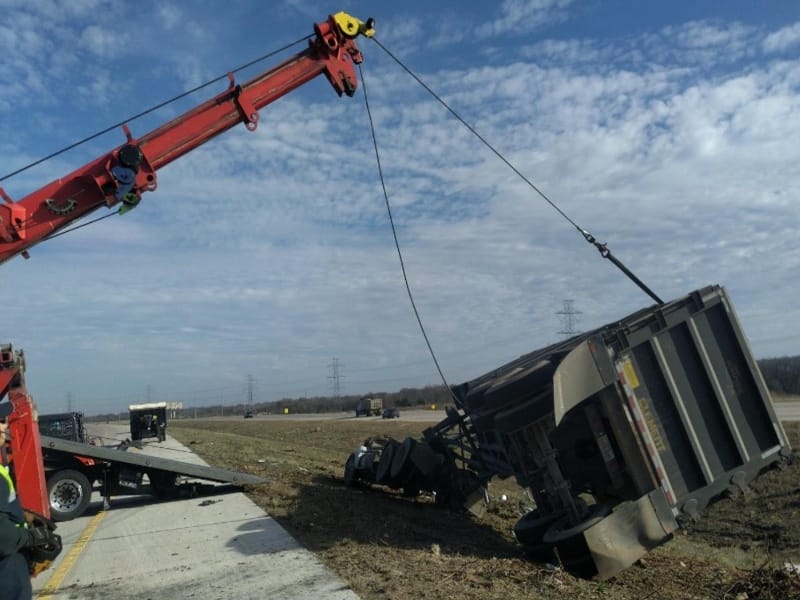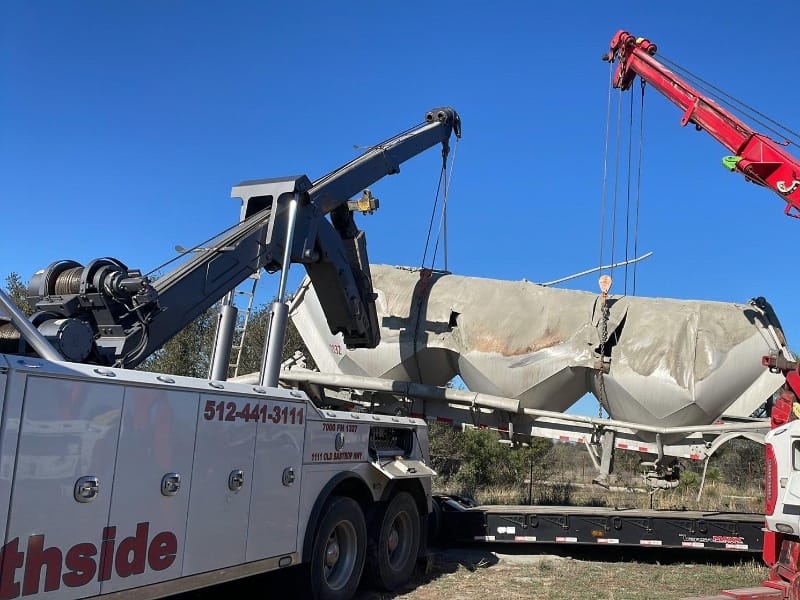Know Your Limit or Risk the Tow
You can hear it before you see it: tires squealing, engine groaning, trailer swaying like it’s got a mind of its own. Then it rolls past: some poor pickup dragging a load that clearly belongs on a freightliner. It’s that sketchy haul that looks one bump away from disaster. Please believe our Cedar Park towing experts: that’s what happens when towing capacity is ignored.
It’s not just a number buried in your owner’s manual, no. Your vehicle actually has a hard stop. And pushing past it risks everything you’re hauling, your vehicle, and everyone on the road. Towing capacity is a calculated limit based on the strength of your engine, transmission, axles, brakes, and suspension. And trust us, just because your truck feels like it can handle more doesn’t mean it should.

How to Calculate Your Towing Capacity
You don’t need to be a mechanic to understand your vehicle’s limits. You just need the right numbers. Here’s how we calculate it:
- Check the Gross Combined Weight Rating (GCWR): This is the maximum weight of your vehicle plus the trailer and cargo.
- Subtract your Gross Vehicle Weight (GVW): That’s the weight of your vehicle fully loaded (passengers, gear, fuel).
- What’s left is your max towing capacity.
Here’s a quick example:
- GCWR: 15,000 lbs
- GVW: 7,000 lbs
- Max towing capacity: 8,000 lbs
It’s also crucial to factor in tongue weight (how much weight the trailer puts on your hitch) and to double-check your hitch’s rating. Everything has a limit—even your hitch ball.
The Risk of Ignoring Towing Capacity
This isn’t about numbers for the sake of numbers. Overloading your vehicle can lead to:
- Blown tires or overheated brakes
- Transmission failure
- Loss of steering or braking control
- Frame damage
- Legal penalties in case of accidents
Once you’re overloaded, stopping distance increases and turning becomes unpredictable. On a steep hill or busy highway, that’s a recipe for disaster.
Common Misconceptions About Towing Capacity
There are plenty of myths from folks who’ve learned the hard way. Let’s clear up a few:
“I’ve towed this load before, so it’s fine.”
Past luck doesn’t guarantee future safety. Conditions change, weather, hills, trailer condition, even tire pressure.
“It’s just a short trip.”
Even short distances can cause major wear or failure. A busted transmission doesn’t care if the load only moved 5 miles.
“I’ll just drive slower.”
That doesn’t reduce the strain on your brakes, suspension, or hitch. Towing is about physics, not speed.

Southside Wrecker: When in Doubt, Call the Cedar Park Towing Pros
At Southside Wrecker, we’ve helped plenty of drivers who found themselves stuck, smoking, or stranded because they didn’t think twice about towing limits. Our Cedar Park towing team has seen it all. That’s why we always recommend doing the math before the haul.
If your truck is loaded past capacity or something doesn’t feel right on the road, don’t try to push through it. Call our Cedar Park towing service and let us get you and your vehicle to safety without making a bad situation worse.
Here’s what our Cedar Park towing crew can help with:
- Recoveries from blown-out trailers or overloaded trucks
- Roadside help for overheated engines or worn-out brakes
- Emergency tows when towing jobs go sideways
- Heavy-duty towing for hauls that need more muscle than a pickup can offer
When a load gets out of hand, we’re ready to step in. Our Cedar Park towing team handles heavy hauls, recovery jobs, and breakdowns with the right tools and experience. We can always help drivers who pushed past towing limits and paid the price. Every pound matters. Call the Cedar Park towing experts before things go sideways.

